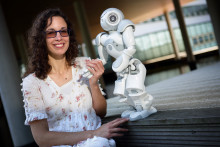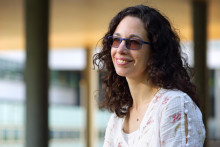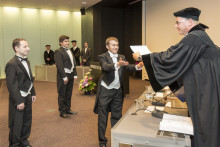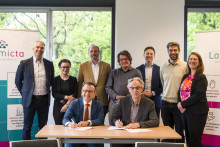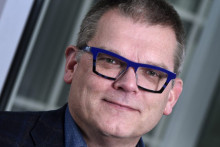Professor Evers will be in charge of the newly established institute from August. What made her take this step and move all the way to Singapore? ‘I didn’t have the ability to say no,’ says the scientist. ‘It’s an exciting opportunity to be in such a senior position and to learn. It’s a great way to spend at least a year.’
Institute of Science and Technology for Humanity (NISTH)
The Institute of Science and Technology for Humanity was launched at the Nanyang Technological University (NTU) in March 2019. As such, Vanessa Evers will serve as its founding director. The institutes’ main objective is ‘to enhance the use of technology to create a better future for humanity’. It will focus on three main themes: responsible innovation, governance and leadership in the age of the fourth industrial revolution, and emerging urban Asia.
Directing an international institute will certainly be different from her usual position as a professor at the UT’s Human Media Interaction group, believes Evers. ‘It will be a very different job. It will also be a culturally very different environment. For example, students and professors have very different relationships there. So I think this will be an even bigger change than my day to day activities.’
Evers is moving to Singapore with her partner and two children. ‘I know, it’s nuts. But I just can’t do this job without them,’ she says. ‘How did they react? Well, my partner thought it was an interesting place to live. My daughter is about to start high school, so she would have to change anyway and she thought it’s nice opportunity to go to an international school. My son isn’t that on board. After all, we have a good life here and even a year can seem like a long time.’
What are the professor’s hopes and goals for the time abroad? ‘I hope to establish an institute that is recognized internationally as a place that connects science to society, a place where high impact research is done,’ says Evers. ‘Connecting to society is precisely what we’ve set out to do here at DesignLab. NISTH could become our Asian counterpart. I’d like to set up an international network of same minded institutes. However, my main goal is to learn. Learn how to operate at such a high level, learn how to build a global network, learn how to be a director with such a big responsibility.’


